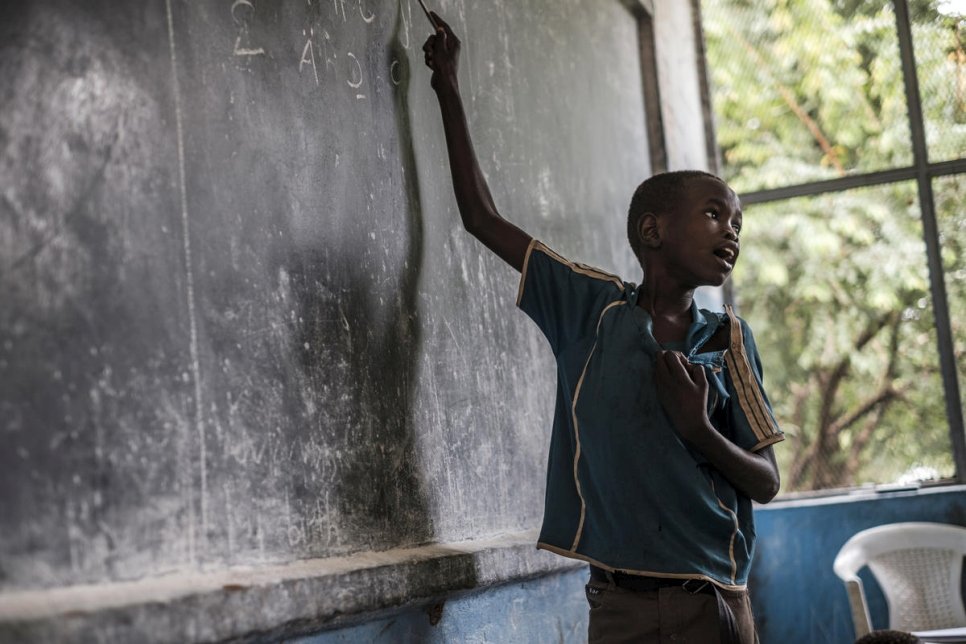UNHCR seeks support for refugees and hosts in Ethiopia
This is a summary of what was said by UNHCR spokesperson Andrej Mahecic – to whom quoted text may be attributed – at today's press briefing at the Palais des Nations in Geneva.

A South Sudanese boy stands at the blackboard at a primary school in Jewi refugee camp, Ethiopia. © UNHCR/Eduardo Soteras Jalil
UNHCR, the UN Refugee Agency and partners are appealing for robust international support for refugee operations in Ethiopia with the launch of a funding appeal for US$658 million to assist over 735,000 refugees and more than half a million Ethiopian hosts in 2020.
International support and solidarity is vital to ensure the implementation of the wide range of rights granted to refugees by Ethiopia during the last three years. The country’s revised laws grant refugees the right to work and access social services, facilitating their inclusion among the communities where they live in Ethiopia.
The Ethiopia Refugee Response Plan, launched in Addis Ababa this morning, covers humanitarian activities by UNHCR and 57 other humanitarian partners. It seeks to address huge gaps in health and nutrition, education, and shelter while also investing in sectors including sanitation, energy and livelihoods.
In January last year Ethiopia adopted progressive laws, which allow refugees to obtain work permits, access primary education and obtain drivers’ licenses. Additionally, they enable refugees to register essential events such as births and gain access to national financial services, such as banking.
Resources are needed to expand existing social services infrastructure in health, education, water and sanitation, environmental protection, social protection and employment as part of the broad refugee response.
Ethiopia has a long history of hosting refugees and asylum seekers. It is currently hosting more than 735,000 from 26 nationalities, the majority from South Sudan (329,123), Somalia (191,575), Eritreans (139,281) and Sudan (42,285). The number of refugees is expected to grow substantially during the course of the year as the country continues to receive refugees with nearly 100,000 new arrivals last year.
The country is also dealing with its own internal displacement and food insecurity challenges that leave 8.4 million people in need of humanitarian assistance in 2020.
UNHCR is part of inter-agency humanitarian efforts to assist over 1.5 million Ethiopians displaced due to conflicts and climate shocks. Following the government’s large-scale IDP return operation last year, UNHCR has been supporting reintegration and recovery effort for displacement-affected Ethiopians, including returnees and vulnerable host communities.
